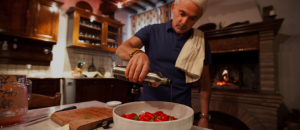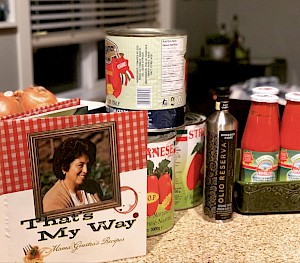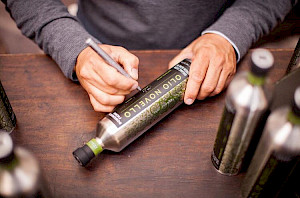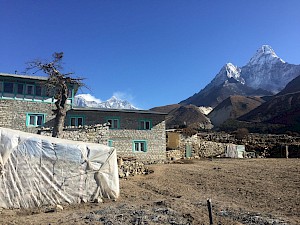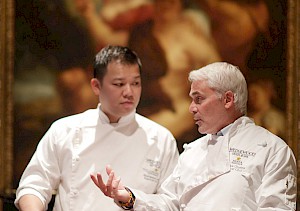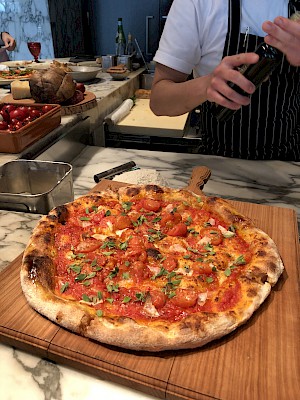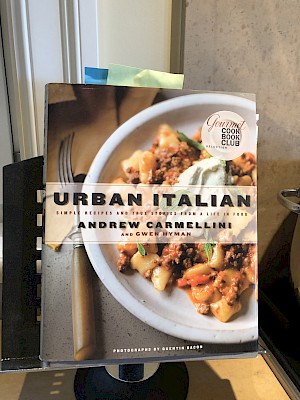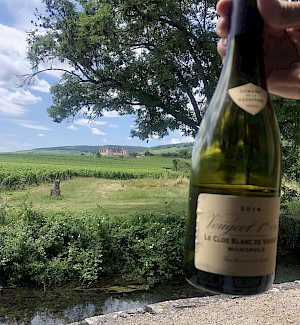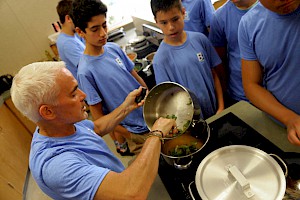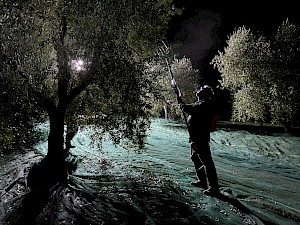For the Love of Olive Oil
October 14, 2020The olive tree is surely the richest gift of Heaven.
- Thomas Jefferson
Anyone who knows me can attest to how obsessed I am with olive oil. I talk about it almost as much as I consume it. I am a shameless promoter when it comes to my company Domenica Fiore, which produces some of the finest olive oils in the world. I have been known to mention my oil in interviews about such unrelated topics as geopolitics and financial markets. But I certainly don’t do it for the money. It’s practically impossible to make a profit in the olive oil industry if you adhere to the highest quality standards, which we most certainly do. I often joke that Domenica Fiore is one of my non-profit organizations. So, what’s the deal?
 Well, there are two important reasons. First, it simply tastes amazing on most foods as a finishing ingredient. And secondly, it’s one of the healthiest fats you can eat.
Well, there are two important reasons. First, it simply tastes amazing on most foods as a finishing ingredient. And secondly, it’s one of the healthiest fats you can eat.
Olive oil has been part of the Mediterranean diet for 6000 years. Historians believe it was first cultivated in Greece. There are myths and legends abound romanticizing the powers of this “Liquid Gold” as it was referred to by Homer in the Iliad. The bible refers to Moses who is told by God that he will bring his people to a land, “A good land… a land of olive oil...”. Sometime around the 8th century BCE, the olive made its way to the Etruscan civilizations of Tuscany and Umbria areas of Italy.
Tuscan olive oil production is historically robust and well popularized. It’s favoured by some because of the olives’ distinct taste and character. Also, the yield from olive trees in central Italy (where Tuscany and Umbria are located) is some 10 times less than in southern Italian regions that produce a lot of oil, such as Sicily. Today, we know that Umbrian olive oil in particular is very low in acidity when compared with southern regions, and this may help explain why olive oil from Umbria and Tuscany has had such a favourable following over the centuries. Quality reigns over yield. It may be true that olive oil preference is subjective , but I am convinced that this region produces some of the best oil in the world. That’s pretty much why Domenica Fiore grows its olives in Umbria.
 The Mediterranean diet is considered to be one of the healthiest diets known. It consists of fish, fruit, nuts, vegetables and of course, olive oil, which is high in monounsaturated fat (the healthy-for-you kind of fat). But the biggest thing that makes extra virgin olive oil so healthy are the unique disease-fighting components called polyphenols, which are also found in many other superfoods. Polyphenols are a group of over 500 phytochemicals, which are naturally occurring micronutrients in plants. Polyphenols typically act as antioxidants. They can help prevent cellular damage from free-radicals that occur with pollution, smoking, eating rancid foods, and as a by-product of normal metabolism. It's also thought that polyphenols contribute to keeping the body in an anti-inflammatory state which helps lower risk of several chronic diseases. Extra virgin olive oil is very high in polyphenols.
The Mediterranean diet is considered to be one of the healthiest diets known. It consists of fish, fruit, nuts, vegetables and of course, olive oil, which is high in monounsaturated fat (the healthy-for-you kind of fat). But the biggest thing that makes extra virgin olive oil so healthy are the unique disease-fighting components called polyphenols, which are also found in many other superfoods. Polyphenols are a group of over 500 phytochemicals, which are naturally occurring micronutrients in plants. Polyphenols typically act as antioxidants. They can help prevent cellular damage from free-radicals that occur with pollution, smoking, eating rancid foods, and as a by-product of normal metabolism. It's also thought that polyphenols contribute to keeping the body in an anti-inflammatory state which helps lower risk of several chronic diseases. Extra virgin olive oil is very high in polyphenols.
At Domenica Fiore, we take our polyphenol count seriously. In an effort to produce oil with the highest polyphenol counts on the planet, we take production a step further by harvesting our oils earlier in the season. Fruit that is less ripe is higher in polyphenols. Harvesting early also means we sacrifice yield for quality, because the fruit yields less oil when it is less ripe.
 Also, two years ago we introduced an extra early harvest olive oil, Novello di Notte, which is harvested at night. We do this because in September and the first few days of October when we harvest this oil, it’s still too hot to harvest during the day. If olives are picked when it’s too hot the oil will begin to oxidize before its even bottled, thereby diminishing polyphenols. So in order to capture and preserve the heightened health benefits of the fruit and its oil at this stage we need to keep it cool, which means harvesting at night. Putting the health and nutritional benefits aside, the early season night harvest produces a very robust and extraordinary flavour. This oil is produced within two hours of picking and I do believe it to be the most pristine olive oil on earth. I may be biased, but we have a shelf full of awards and medals to prove it.
Also, two years ago we introduced an extra early harvest olive oil, Novello di Notte, which is harvested at night. We do this because in September and the first few days of October when we harvest this oil, it’s still too hot to harvest during the day. If olives are picked when it’s too hot the oil will begin to oxidize before its even bottled, thereby diminishing polyphenols. So in order to capture and preserve the heightened health benefits of the fruit and its oil at this stage we need to keep it cool, which means harvesting at night. Putting the health and nutritional benefits aside, the early season night harvest produces a very robust and extraordinary flavour. This oil is produced within two hours of picking and I do believe it to be the most pristine olive oil on earth. I may be biased, but we have a shelf full of awards and medals to prove it.
I use olive oil on almost all my dishes and I find that it really improves the taste whatever I make. I gave up butter long ago and I don’t miss it at all.
I am writing this article on my flight home from my annual harvest trip and I am still buzzing with excitement. (See my article from last year’s night harvest here.) It’s my favourite time of the year, competing right up there with Christmas. Having traveled internationally it now means I am required to Covid-quarantine for the next 2 weeks. Do I mind? Not really. I brought home four bottles of freshly pressed olive oil which should keep me happily occupied in my kitchen during my isolation.

